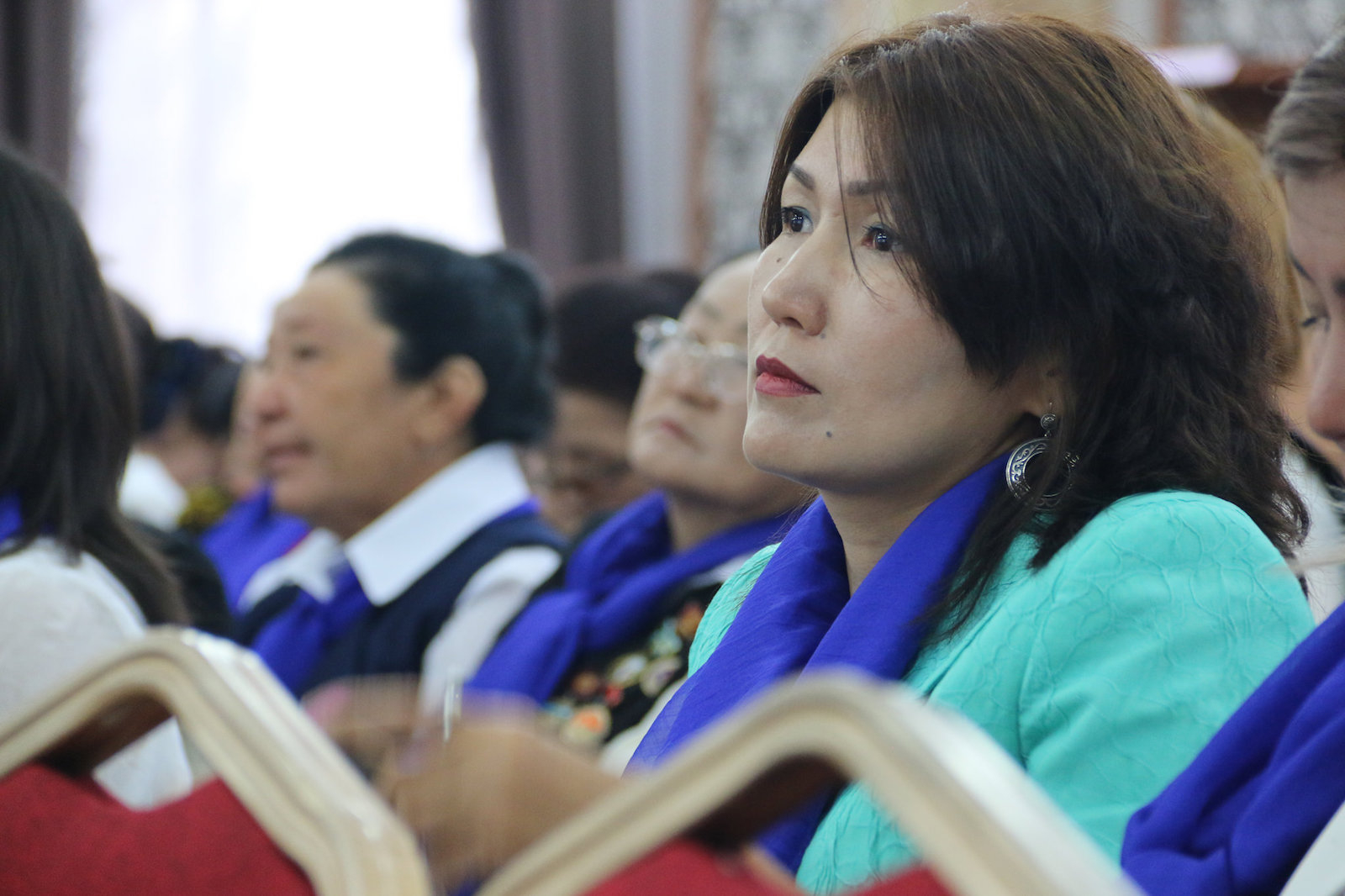
A local women leader at the NDI and IRI organized International Women's Conference in April 2017. (Photo: https://www.flickr.com/photos/krti/33759604343/)
SHARE
Women in Kyrgyzstan face stark barriers to full political participation. Despite holding 23 seats in parliament, women reside in few leadership positions in parties. For example, Kyrgyzstan law requires that women make up every third name on a party candidate list. However, party leaders often pressure women to give up their seats after they are elected. This exclusion means that some issues, such as domestic violence, are not given the attention that their severity warrants. According to Human Rights Watch, nearly one third of women in Kyrgyzstan between the ages of 15-49 are victims of domestic violence, with less than half of registered complaints resulting in a trial.
The Forum of Women MPs, an informal parliamentary caucus founded in 2011 with NDI support, has advocated for women’s rights on the issue of domestic violence. Over the past year, the Forum held a series of public meetings, petition drives and letter writing campaigns that ultimately secured increased protections for victims of domestic violence, and showed that barriers facing women can be overcome through sustained and organized political pressure.
Women local councilors and activists at a regional meeting in Naryn - June 7, 2017
Since 2009, Kyrgyzstani women’s rights groups have called for improvements to the country’s 2003 legislation on domestic violence, demanding greater safeguards for victim’s rights, and improved judicial and police responses to complaints. In response to these calls for action, in early 2016, members of the Forum drafted a law detailing protections for victims. These included:
- a requirement that police investigate all reported instances of domestic violence, not just those reported by the victim;
- criminal penalties for intimidating victims; and
- a provision that all women who report domestic violence receive a police protection order.
The Forum then set to work on a nationwide campaign in support of the draft bill. The campaign was designed to illustrate the impact of domestic violence on communities throughout the country.
Through a series of public hearings and visits to regional crisis centers, MPs collected stories and feedback from the activists, local elected officials and ordinary women whom they met. For example, at a public hearing in Osh in February, one MP asked her audience to share information about their personal experiences with domestic violence, then described her own childhood struggles with violence in her family. Based on this discussion, she made the case for urgent action to protect victims and combat these trends.
Upon returning to parliament, the women MPs who took part in the regional visits recounted the stories that they had heard around the country, with each of them calling upon their fellow parliamentarians to take action to address the problem. As a result of this advocacy, parliament approved the bill, which featured all women MPs as co-authors, on May 16.
Although the bill was approved, it remained unsigned by President Almazbek Atambayev for more than a month, raising fears that it might be returned to the parliament. In response to these concerns, the Forum worked with members of civil society to organize a petition campaign aimed directly at the president. The petition circulated among local women leaders, and at an International Women’s Conference where it received a signature from every single participant. On April 27, a month and a half after parliament approved the bill, the president signed it into law.
The Forum of Women MPs’ efforts have demonstrated that effective grassroots organizing and advocacy can lead to tangible progress on once seemingly intractable social issues.
NDI would like to thank the United States Agency for International Development (USAID) for its support for this program.



